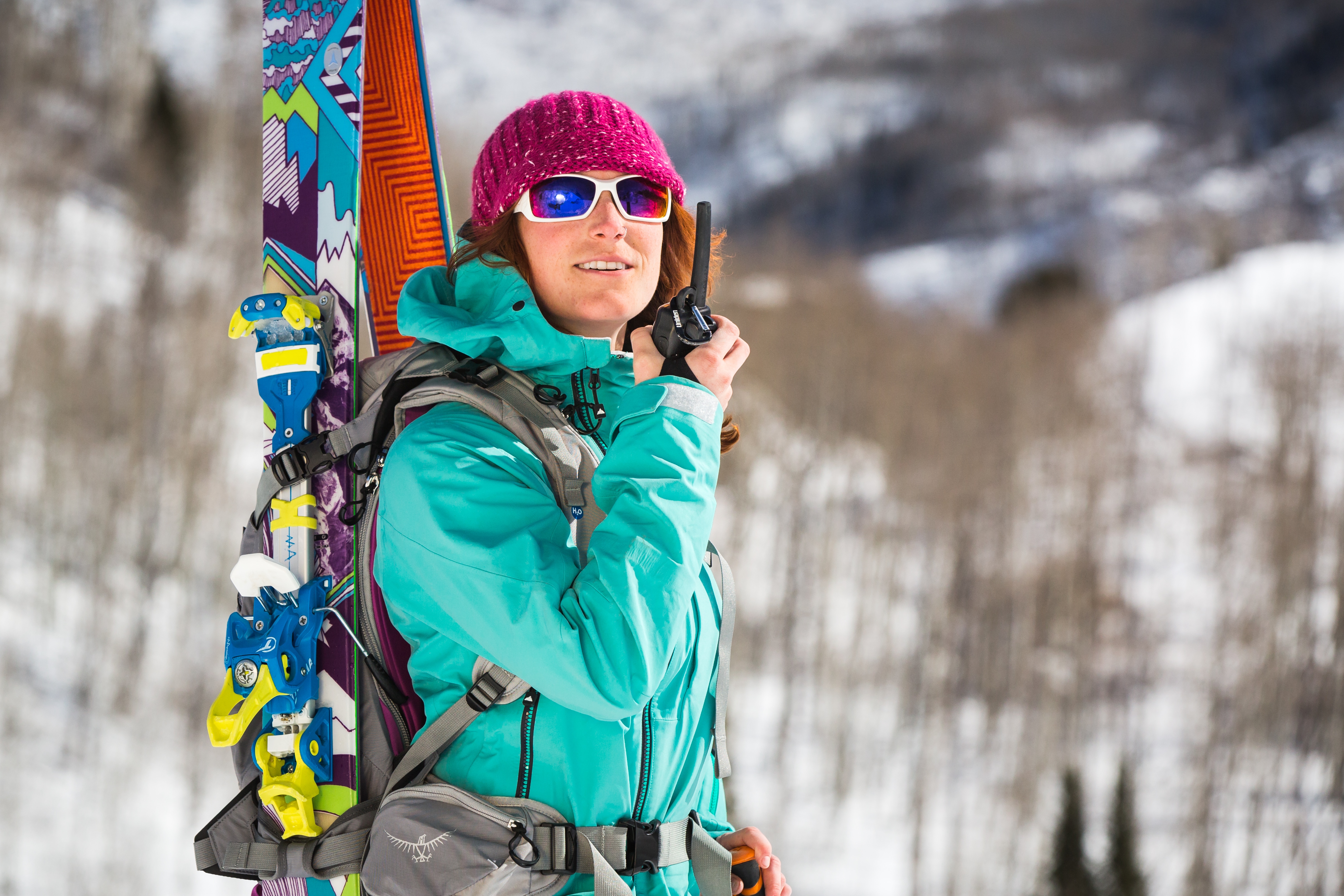Industry experts from Arc’teryx, Burton, Camber Outdoors and Osprey Packs share their advice
Transitioning from outdoor enthusiast to a career in the outdoor industry might seem daunting. Where do you begin? How do you find out about opportunities? Will your skills translate?
To help you get started, we enlisted the help of four women who are crushing it in their outdoor careers. We recently hosted discussions on Facebook and Twitter, in partnership with Camber Outdoors, a national organization dedicated to achieving equality for women in the active-outdoor industries.
Our panel of experts included:
- Brylee Geddis, designer, Ascent at Arc’teryx, North Vancouver, British Columbia
- Katie Mah, designer, Hardgoods, LEAF & Accessories at Arc’teryx
- Kami York-Feirn, social media specialist at Osprey Packs, Cortez, Colorado
- Lesley Betts, senior product manager, Hardgoods at Burton Snowboards, Burlington, Vermont
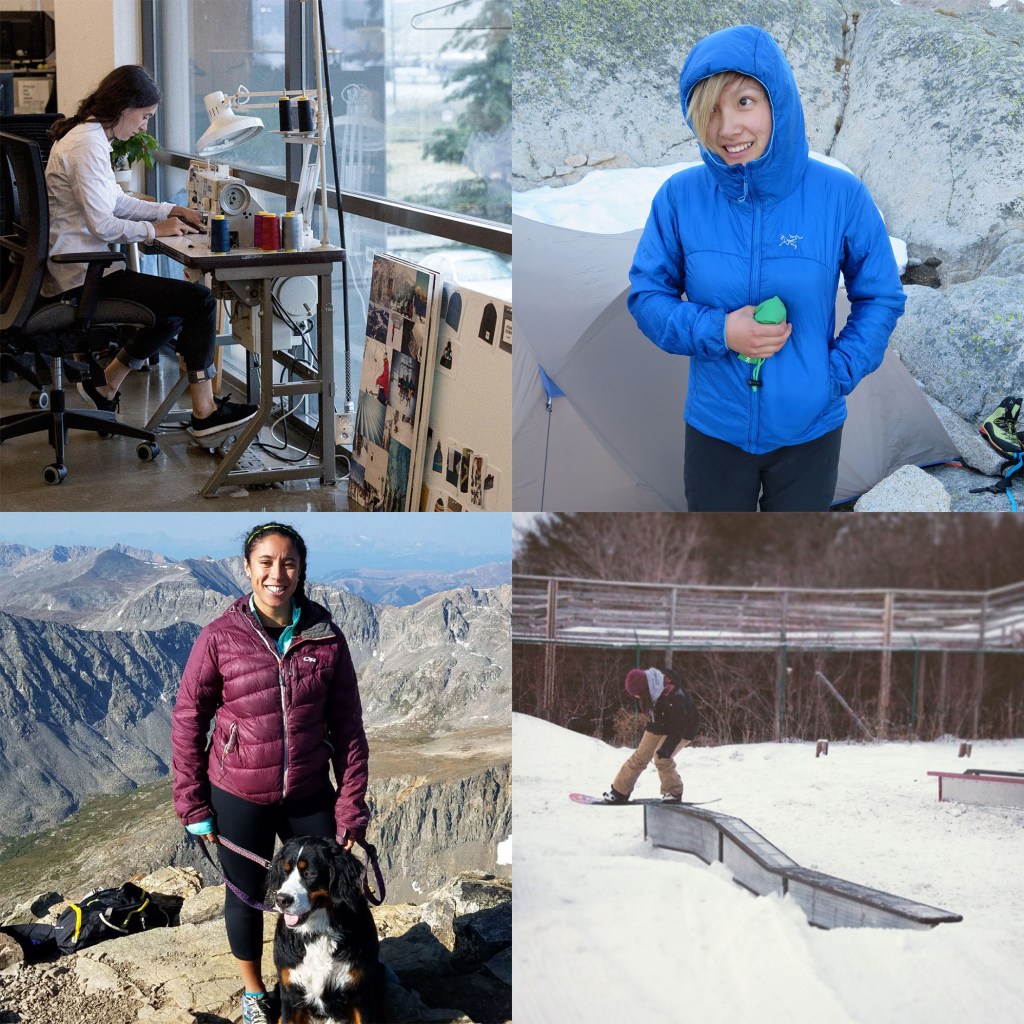
Clockwise starting with the upper left: Brylee (PC: Angela Percival Photography), Katie (PC: Tom Schindfessel), Lesley and Kami
Here’s a recap of some of the top questions from our community and our experts’ responses.
How did you break into the industry and what was your first position?
Katie, Arc’teryx: I’ve been a climber most of my life, but have always loved building things as well. In high school and university, I was fortunate to be sponsored by Arc’teryx for climbing and took that opportunity to get into the studio. I job-shadowed over a couple summers, then decided to study industrial design, where I could combine my passion for making things and problem-solving. It didn’t really occur to me that I could add in my passion for climbing, too, until I took a soft-product design class at school. My first position was as a design assistant for Arc’teryx LEAF (Law Enforcement and Armed Forces), and I’ve since transitioned into designing equipment.
Kami, Osprey Packs: I had a friend who was an ultrarunner and invited me to attend Outdoor Retailer, an industry trade show. At the show, I had the opportunity to meet and network with a lot of brands in the industry and that helped me when I went home to start looking for jobs. If you can, try to attend any outdoor events, demo days and trade shows, and start networking. There are even some great Facebook groups for this type of interest that you can join and be active in. I built my role as a social media manager at my last job (marketing for an agency), and laterally made a transition when I came into the outdoor industry. Best decision I ever made, job-wise.
Lesley, Burton: My first role in the industry was working at a snowboard shop in college. It was a great opportunity to meet other outdoor enthusiasts, familiarize myself with the products and brands, and connect with local reps and network.
Brylee, Arc’teryx: I went to Kwantlen Polytechnic University (in British Columbia) and studied fashion design and technology. In my final year at school, I did an apparel collection for experienced female skiers. I started to wear, as well as promote, my collection skiing and was then put in touch with Arc’teryx. Luckily, the timing was right and a design assistant position had just opened up.
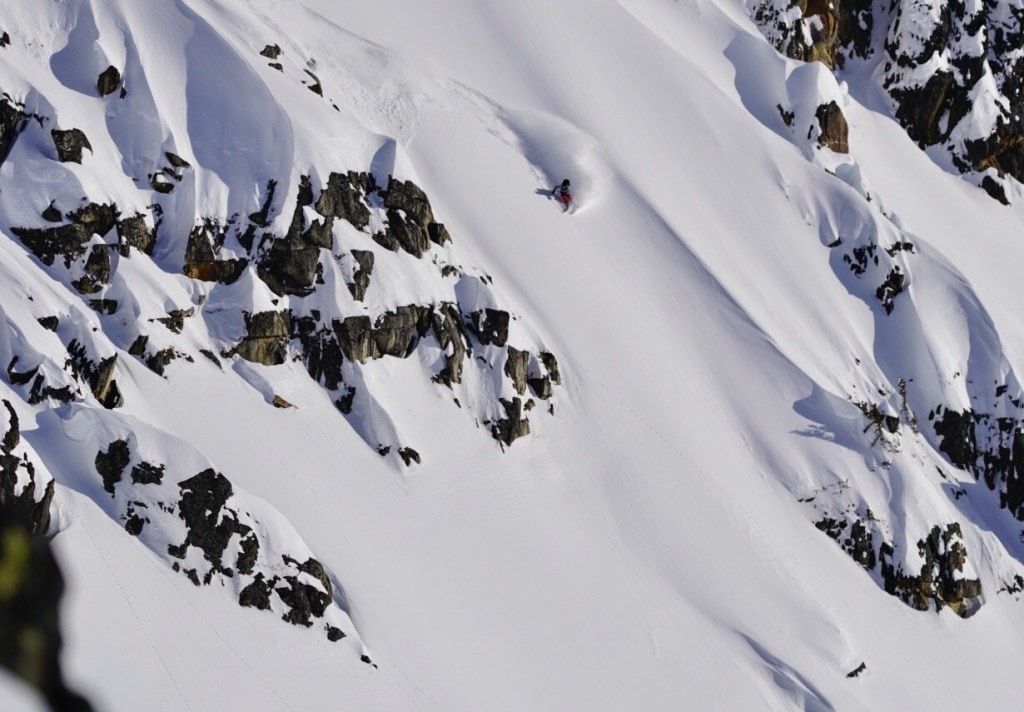
Brylee Geddis (Photo Credit: Angela Percival Photography)
How do you find career opportunities in the outdoor industry? Do you have to move to the mountains to get an outdoor job?
Katie, Arc’teryx: Many of cmy co-workers and friends have actually done exactly that. One moved from New York to Vancouver, B.C., basically for the proximity of climbing in Squamish and the Rockies. It’s a common story at Arc’teryx, whether it’s the skiing, climbing or biking that draws you. As for job opportunities, it certainly helps to start getting face to face with people. Next vacation, plan some info meetings in advance with companies you’re interested in.
Camber Outdoors: Camber Outdoors hosts networking events called Camber Exchanges all over the country. If you have a chance to attend the Outdoor Retailer show, that would be a great opportunity to meet folks, too. Our Career Center is a also great place to look for outdoor industry jobs, explore resources and find female role models.
Kami, Osprey Packs: Outdoor Industry Jobs is another great resource for all types of outdoor industry jobs, not specific to women. Keep an eye on your favorite brands’ Instagram accounts, as we often announce networking or public events on there. LinkedIn is a great resource, as well as any outdoor events. I would also look at Facebook groups, as they are a great place to meet hiking/biking/climbing partners and network.
What advice would you give to outdoor enthusiasts who want to transition into a career in the outdoor industry?
Katie, Arc’teryx: Many of my coworkers have been high-performance athletes and many continue to push their athletic boundaries, so it definitely can be done. Don’t take for granted your outdoor background. It’s hard to find people who have genuine outdoor knowledge and work hard. The ones who do often flourish because they have the same end goals in mind.
I do find it hard at times to balance both design work and climbing training (the two together probably take up 90 percent of my time), but having both in my life keeps me balanced. I couldn’t do just one or the other.
As for advice, do some research and ask around to find a company and company culture you identify with, ideally one that embraces your lifestyle. Then, reach out to all your relevant connections and make some moves to get over there and start building some new relationships.
Camber Outdoors: We’ve got a bunch of resources on our Career Center designed to help women make the shift into the outdoor industry.
Kami, Osprey Packs: I transitioned into the outdoor industry from a similar role at a marketing agency that worked with legal and medical clients. While I still do social media management, I didn’t feel like anyone questioned my move. Why wouldn’t you want to work in the outdoors? I feel that this industry is very welcoming and understanding of career change as long as you have relevant experience and a passion for the brand you’re applying for.
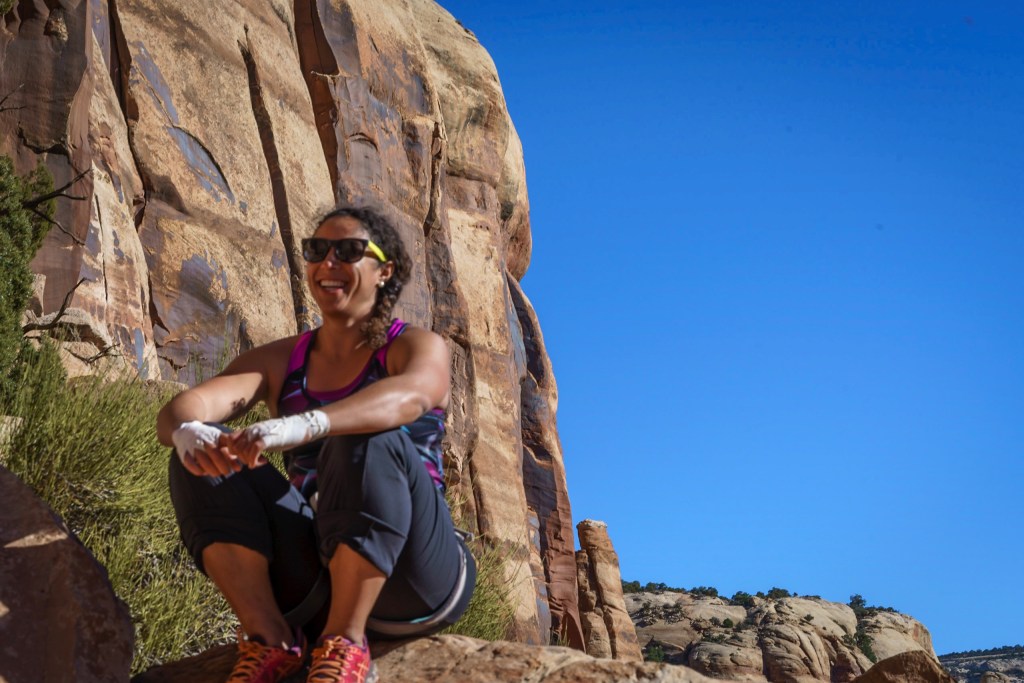
Kami (Photo Credit: Rob BonDurant)
Transitioning professions can be difficult and requires commitment. What was one thing that brought you joy during work transitions?
Kami, Osprey Packs: It can be really hard. For me, I accepted a job that was seven hours away from friends and family in Denver to a one-stoplight town, which made the move that much harder. I have a great support team at work that invited me on hikes and to try new activities such as climbing when I was a newbie. I’d say getting outside and trying new things with new people and not being afraid of new experiences was key for me.
Lesley, Burton: It might sound cheesy, but snowboarding is the thing that brought me joy throughout any work transitions. Being in product development, I always get stoked when I see people outside enjoying the product that we pour our heart and souls into—it makes everything worth it.
What challenges come with doing something you love as your profession, and how can you keep your passion alive over time?
Kami, Osprey Packs: It’s very important to make time for yourself and to unplug from work. Whether you are snowboarding, climbing, mountain biking, hiking—leave that work email alone for a while and enjoy nature.
Katie, Arc’teryx: I try to keep adding new interests into the mix and to keep learning things, whether it’s taking a class, going to a meet-up event or talk, or trying a different sport. When it comes to my design process, I find the more different things I try, the more parallels I can draw and better ideas I have.
What’s something you wish more people knew about working in the outdoor industry?
Brylee, Arc’teryx: A fun part of my job is field testing—someone has to do it, right? But, on the flip side, I think a huge number of people think all we do as designers is ski and draw. There is so much more to it than that. We spend a lot of hours in the office designing, patterning, sewing, testing and testing again.
Katie, Arc’teryx: I agree with Brylee. Something I wish more people knew is that good design takes a lot of grunt work. Hundreds of hours of building and breaking, and testing and rebuilding. And that doesn’t even include the teams of people who continue to support the product after it leaves our design department. I know I’m not alone in the personal sacrifices I make with my time, but it makes me feel good to put out stuff that I think is worth making and I hope will make someone else’s day better.
Lesley, Burton: Every day is not a party. There are amazing benefits, and the culture around you is great—but it’s still a job. You have to put in the hours in order to be able to have the fun that you want.
Kami, Osprey Packs: As a social media manger, I also do a lot of the customer service for our brand. I try to approach every task as one I can learn from, but it is hard to read some of the mean or rude things people say about your brand online. I’ve grown to realize you cannot make all customers happy, but as someone who is passionate about my job, I often take those comments personally. I’d say responding to customer feedback is one of the less glamorous but essential parts of my job and the industry, but I still love my job.
How has mentorship played a role in your career and how did you find a mentor?
Lesley, Burton: Mentors are a huge factor in my career path. When I come across someone who inspires me, has a skill set that I admire, or is in a position that I aspire to, I make a point to try to connect with them. Luckily, at Burton, we have a mentor network that sets up employees with the opportunity to connect with others in the company who we want to learn from.
I was also lucky enough to be selected for Camber Outdoors’ Professional Mentor Program last year, which connected me with a female mentor in the outdoor industry outside of my current network. It was a wonderful opportunity and I strongly recommend that you apply if you are interested in working in the outdoor industry.
Katie, Arc’teryx: The climbing community helped me instill drive, determination and confidence over a dozen years of climbing. Then, with support from friends in the industry, family and professors who challenged me, I was fortunate to channel my passion for climbing into a career.
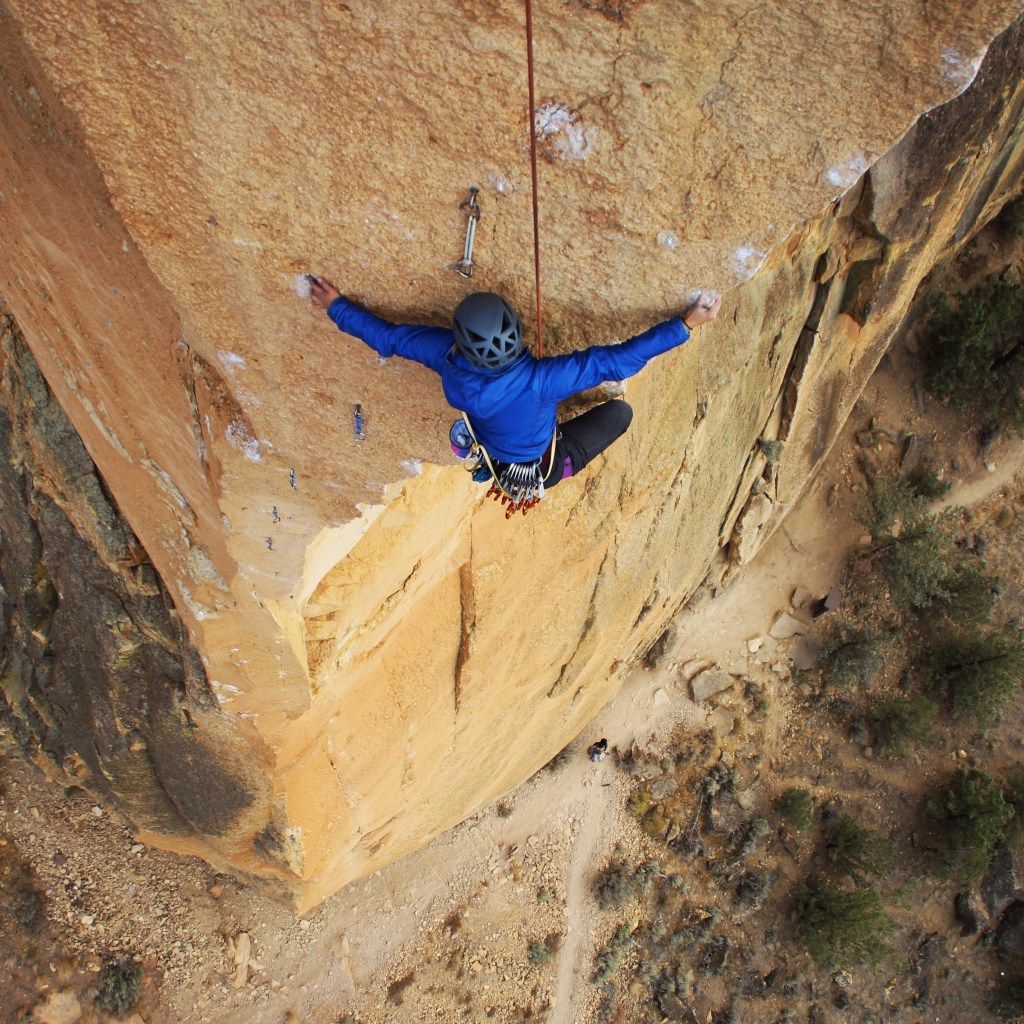
Katie Mah (Photo Credit: Tom Schindfessel)
What is the best advice you’ve received that has helped your career?
Katie, Arc’teryx: While working, try to spend the majority of your time doing things that teach you something.
Kami, Osprey Packs: When I was deciding whether to take this new job at Osprey Packs, one of my friends told me always be true to yourself. I have tried to embody that phrase in my work and have found the more authentic you are, the more you love what you do and the less it feels like work.
Brylee, Arc’teryx: Sew! And take the time to fully immerse yourself in the product—from experiencing it firsthand to building it firsthand.
Lesley, Burton: Be you. Being authentically you. I can’t stress enough that trying to change yourself to fit another agenda or hide the person you are can interfere with your career path. If you’re honest, authentic and just you, people will see that and you’ll blossom in your field.
Editor’s Note: This discussion has been edited for length and clarity.
